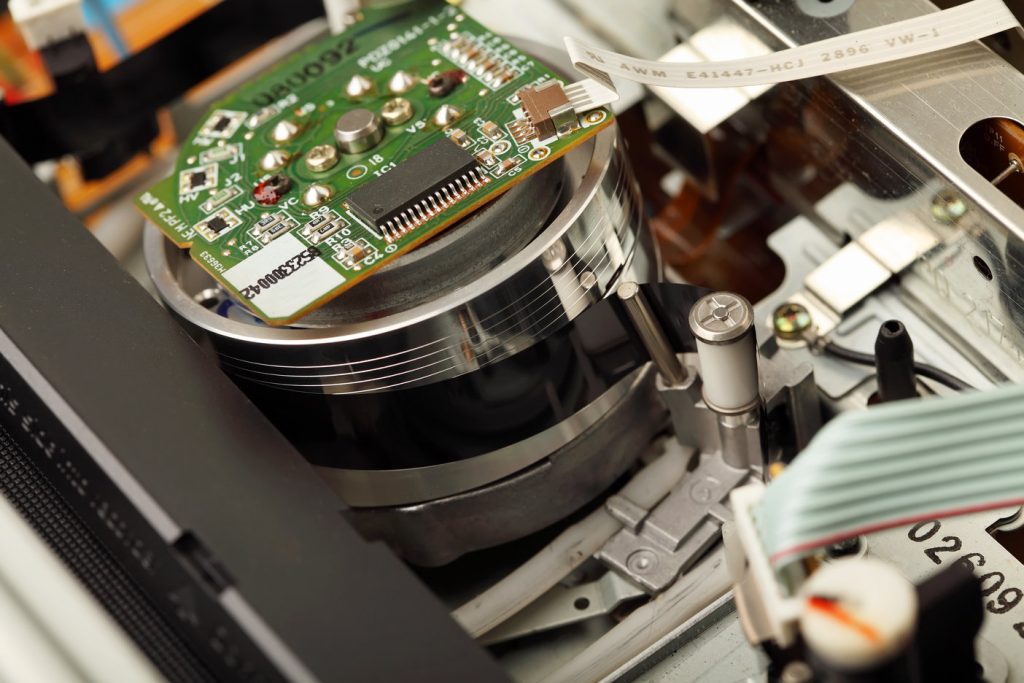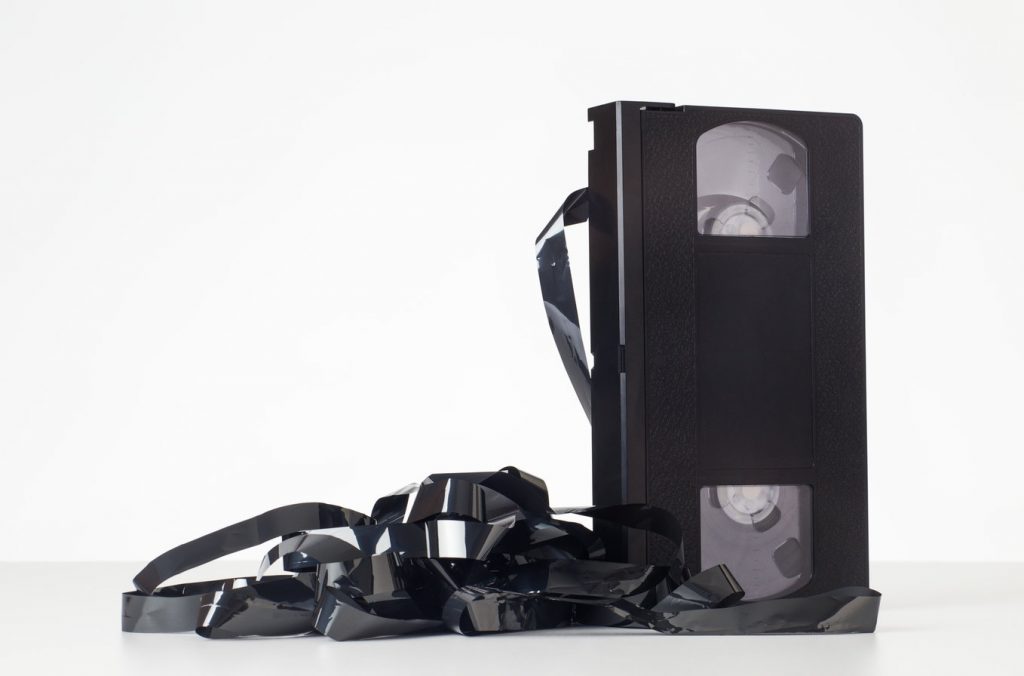If you’re still clinging on to a pile of old VHS tapes that you haven’t backed up, you should be aware of how long those tapes will still be useable. Even if you take incredibly good care of them, VHS tapes will eventually deteriorate. By the very nature of their components, VHS just wasn’t built to stand the test of time.
So, just how do tapes deteriorate even when left alone in storage? And approximately how long can you expect them to remain intact?
Inside a VHS Tape
The make up of a VHS tape is dependent on how it was manufactured, but, fundamentally, they are made up of three layers: the binder, the substrate and the backing. These layers have been engineered to help the tape survive the friction and stress of repeated playing, re-winding and forwarding of the tapes.
The binder layer comes into direct contact with the heads of the playback machine and provides the signal quality. It contains magnetic particles that store the information on the tape. They are usually suspended in the binder along with lubricant, the purpose of which is to seep out during playback (microscopically), to prevent damage to the binder layer. The substrate and backing layers are there for dimensional stability and strength, and the backing layer also helps to reduce friction.

Why Does Tape Degrade?
There are a number of factors that cause VHS tape to degrade, a key one being that the magnetic charge needed for them to work is not permanent. Magnetic particles gradually lose their charge, in a process called remanence decay. The rate of decay will depend on the exact chemistry of the particles used, but if it does happen you can expect some colour shift towards weaker hues and a loss of detail overall in your footage.
The particles could also become demagnetised from being stored too close to a magnetic source, such as a loudspeaker, or even from a poorly maintained VCR.
The lubricant in the binder layer can be used up; the level of lubricant will decrease with each use. Even if the tape remains unused, the lubricant can evaporate or degrade over time. As it erodes, the binder layer will take on more wear when the tape is played, which could affect the magnetic particles and cause information loss.
If stored in a humid environment, the binder’s polymers can absorb water through hydrolysis, and eventually delaminate. This is known as sticky-shed syndrome, and trying to use an affected tape can damage both tape and the playback machine.
The quality of the tape can also be reduced through excessive rewinding and playbacks, as this can cause the backing and substrate to become stretched.
How Long Do They Last?
The longevity of your tapes depends on a number of factors. The risk of hydrolysis can be potentially catastrophic and is related to how well you’ve stored the tapes. Insufficient storage will quicken the deterioration process, but you should be aware that even tapes kept in optimal condition are not immune from this.
Research generally indicates that magnetic tapes like VHS and Hi8, stored well, will experience 10-20% signal loss, purely from magnetic decay, after 10-25 years. Given how long VHS has been obsolete, chances are that your old tapes have already reached, if not exceeded, this time frame.

What You Can Do
If you want to keep your VHS tapes for as long as possible there are a few options:
- Store at room temperature. VHS tapes should not be too hot or too cold. Industry standards recommended between 18-21 °C. Higher temperatures increase the tape pack tightness, resulting is distortion of the tape backing. Too cold and this can cause chemical changes in the lubricant in the binder layer.
- Keep them dry. A humid environment will wreak havoc with VHS tapes. A low humidity environment is important for preventing hydrolysis. Tapes are recommended to be stored at between 40-50% humidity. Beware of storing VHS tapes in cellars and attics as these rooms can be troublesome humidity wise.
- Avoid drastic shifting of temperature/humidity. Variations in temperature and humidity can cause problems with tapes. Tape packs are wound under considerable amounts of tension, and this tension increases or decreases when the pack is heated or cooled respectively. If the pack tension is too high or low, tape can become permanently damaged.
Finally, you should make sure you have backup copies of your VHS footage with a VHS to DVD transfer. Even if you keep your VHS in tip-top condition, you can’t prevent the natural occurrence of decay. So, make sure you protect those family memories with a video to digital transfer, you can choose from a DVD or MP4 stored in the cloud or on a USB.
At Video2DVD, we ship your VHS tapes back to you along with the DVD, so even if you want to keep those tapes for nostalgic reasons, you can do so, but safe in the knowledge that the footage has been safely preserved. Don’t delay, the sooner you do your conversion, the higher the chance all of your footage can be saved.

